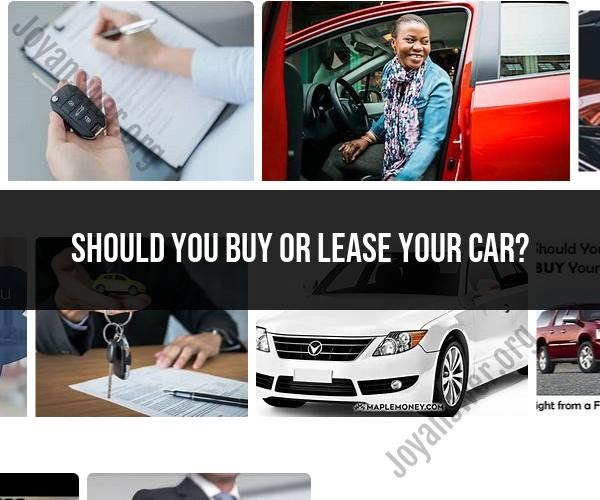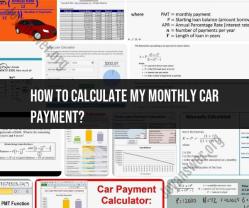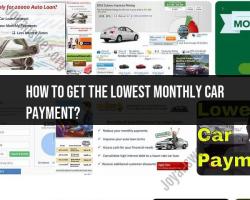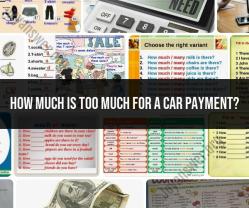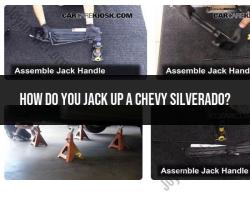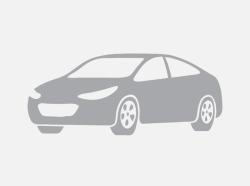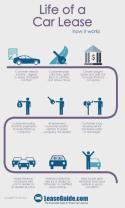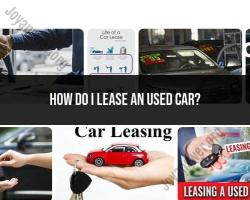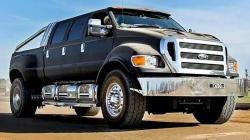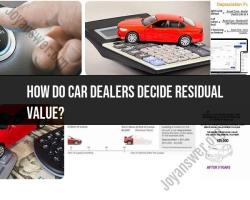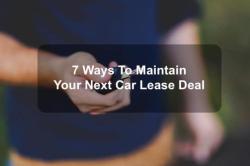Buying vs. Leasing a Car: Which Is the Better Choice?
September 23, 2023 by JoyAnswer.org, Category : Automotive
Should you buy or lease your car? Explore the advantages and disadvantages of buying and leasing a car to determine which option suits your needs and finances.
- 1. Should you buy or lease your car?
- 2. Buy vs. Lease: A Comprehensive Guide to Car Ownership
- 3. Car Acquisition Dilemma: The Pros and Cons of Buying vs. Leasing
- 4. Car Financing Decision: Buying vs. Leasing Considerations
Should you buy or lease your car?
Whether to buy or lease a car depends on your individual financial circumstances, preferences, and priorities. Both options have their pros and cons, so it's essential to evaluate your situation to determine which one is the better choice for you. Here's a breakdown of the key factors to consider when deciding whether to buy or lease a car:
Buying a Car:
Pros:
Ownership: When you buy a car, you own it outright once you've paid off the loan, which means you can keep it for as long as you want without monthly payments.
Equity Buildup: As you make loan payments, you build equity in the car. You can sell or trade in the car when you decide to get a new one, potentially recouping some of your investment.
No Mileage Restrictions: There are no mileage restrictions or excess mileage fees when you own a car, allowing you to drive as much as you want without penalty.
Customization: You have the freedom to modify or customize the car to your liking.
Cons:
Higher Monthly Payments: Monthly loan payments for a purchased car are typically higher than lease payments.
Depreciation: The car's value depreciates over time, and you bear the full brunt of that depreciation when you own the car.
Maintenance Costs: As the car gets older, you may face increasing maintenance and repair costs.
Leasing a Car:
Pros:
Lower Monthly Payments: Lease payments are often lower than loan payments for the same car, making it more affordable in the short term.
Warranty Coverage: Leased cars are typically under warranty, which can reduce maintenance and repair costs during the lease term.
No Resale Hassles: You don't have to worry about selling the car when the lease term ends; you can return it to the dealership and lease a new one.
Access to Newer Models: Leasing allows you to drive a new car with the latest features and technology every few years.
Cons:
No Ownership: When you lease, you don't own the car, and you have to return it at the end of the lease term.
Mileage Restrictions: Lease agreements often come with mileage limits, and exceeding them can result in costly excess mileage fees.
No Equity Buildup: You don't build equity in the car; you're essentially paying for the depreciation during the lease term.
Lease Penalties: Excessive wear and tear on the car or modifications that violate the lease agreement can result in additional fees.
To decide between buying and leasing, consider your financial situation, driving habits, and priorities. If you prefer lower monthly payments and driving a new car every few years, leasing might be a good choice. On the other hand, if you want long-term ownership and the potential for equity buildup, buying a car could be more suitable.
Ultimately, it's advisable to run the numbers, compare offers from dealerships, and factor in your personal preferences to determine which option aligns better with your needs and budget. Additionally, consult with a financial advisor or auto expert for guidance tailored to your specific situation.
Buy vs. Lease: A Comprehensive Guide to Car Ownership
Buying and leasing are two different ways to acquire a car. Each option has its own set of pros and cons, and the best choice for you will depend on your individual needs and circumstances.
Buying a car
When you buy a car, you are essentially taking out a loan to purchase the vehicle. You will then own the car outright, and you will be responsible for all of the costs associated with owning and maintaining it, such as insurance, registration, and repairs.
Pros of buying a car:
- You own the car outright.
- You can keep the car for as long as you want.
- You can modify the car as you please.
- You can build equity in the car, which can be used to trade in for a new car or to borrow money against.
Cons of buying a car:
- Higher upfront costs: You will need to make a down payment on the car, and you will also need to pay for insurance, registration, and other fees.
- Higher monthly payments: Your car loan payments will likely be higher than your lease payments.
- Risk of depreciation: The value of your car will depreciate over time, so you may not be able to sell it for as much as you paid for it.
- Responsibility for repairs and maintenance: You will be responsible for all of the costs associated with repairing and maintaining your car.
Leasing a car
When you lease a car, you are essentially renting it from the dealership for a set period of time, typically two to four years. At the end of the lease term, you can return the car to the dealership, lease a new car, or purchase the car for the residual value, which is the agreed-upon value of the car at the end of the lease term.
Pros of leasing a car:
- Lower upfront costs: You will typically only need to make a small down payment on the car, and you may not need to pay any other fees.
- Lower monthly payments: Your lease payments will typically be lower than your car loan payments.
- No risk of depreciation: You do not own the car, so you are not responsible for its depreciation.
- No responsibility for repairs and maintenance: The dealership is responsible for all of the costs associated with repairing and maintaining the car during the lease term.
Cons of leasing a car:
- You do not own the car.
- You cannot keep the car for as long as you want.
- You cannot modify the car as you please.
- You are limited to the mileage allowance specified in the lease contract.
- You may have to pay additional fees at the end of the lease term, such as an excess mileage fee or a wear and tear fee.
Car Acquisition Dilemma: The Pros and Cons of Buying vs. Leasing
The best way to decide whether to buy or lease a car is to weigh the pros and cons of each option and consider your individual needs and circumstances.
Here are some things to consider when making your decision:
- Your budget: How much can you afford to spend on a down payment, monthly payments, and other costs associated with owning or leasing a car?
- Your driving habits: How many miles do you drive each year? How long do you plan to keep the car?
- Your needs: What type of car do you need? Do you need a car that can seat a lot of people or that can carry a lot of cargo?
- Your preferences: Do you want to own your car outright, or would you rather lease a car and have lower monthly payments?
Car Financing Decision: Buying vs. Leasing Considerations
Once you have weighed the pros and cons of buying and leasing a car, you can start to consider your financing options.
If you are buying a car, you will need to take out a car loan. There are many different lenders that offer car loans, so you should shop around to find the best interest rate and terms.
If you are leasing a car, the dealership will typically arrange the financing for you. However, you should still be sure to read the lease contract carefully and understand the terms of the financing agreement.
No matter whether you choose to buy or lease a car, it is important to do your research and understand your options before you make a decision. By carefully considering your needs and budget, you can choose the best option for you.
